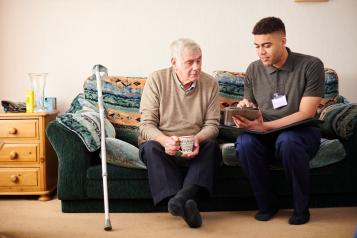Four ways carers told us they can be better supported

In the next 20 years, it's anticipated that over nine million people will become an unpaid carer and offer support for a loved one or friend. It’s vital that these carers get the help they need to look after themselves and others.
Over half of the Healthwatch network have spoken to carers to understand their experiences. We look at what one Healthwatch in Hampshire heard from over 200 carers about how they could be better supported.
Understanding how carers want to be better supported
1. One-stop-shop for carers
Carers want to be able to access up-to-date information, support, and benefits more easily. They think having one place to go to for advice and information, which could be accessed in person, by telephone or online, would make things easier.
2. Getting the right training
Many carers said they aren’t given training to support a loved one, which can leave them feeling vulnerable and overwhelmed. Training, such as first aid and lifting and handling, could help them feel better prepared when providing support.
My son has severe epilepsy, but I’ve never had basic first aid or seizure training. It’s absurd!
3. Everyone has different needs
Carers have different experiences and backgrounds, so people said they want support to be tailored to their individual needs. Many people also miss out on vital support because they don’t realise it is available, so more needs to be done to raise awareness of this.
4. Opportunity to take time out and talk
Caring can be very isolating and overwhelming, so people want access to flexible support, which allows them to take a break. Some carers want to join groups to connect with people in similar situations, whilst others prefer to take time out alone.
I am a full-time carer for my father and am disabled myself. I get three hours a week to ‘take a break’.


